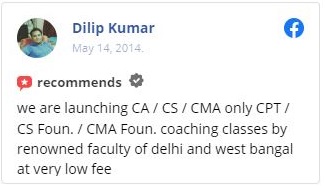Polytechnic Diploma Admission Process
Polytechnic Diploma Admission from Top Universities: Admission Process, Eligibility Criteria, Scope, Syllabus and Career Opportunities
Polytechnic Diploma Admission: Overview
A polytechnic diploma is an excellent option for students interested in acquiring practical skills and technical knowledge in a shorter time frame. Typically spanning 2 to 3 years, these programs focus on various fields, including engineering, information technology, hospitality, and design.
One of the main advantages of a polytechnic diploma is its hands-on approach. Students engage in workshops and real-world projects, which prepares them to meet industry demands effectively. This practical exposure not only enhances their understanding of theoretical concepts but also develops essential skills such as problem-solving, critical thinking, and communication.
Moreover, the curriculum is designed to be industry-relevant, ensuring that graduates are equipped with the latest tools and techniques needed in their respective fields. This focus on employability makes a polytechnic diploma a smart choice for those looking to enter the workforce quickly.
Another significant benefit is that a polytechnic diploma serves as a stepping stone for further education. Many graduates choose to pursue advanced degrees or specialized certifications, opening up a wider array of career opportunities.
In summary, a polytechnic diploma provides a balanced mix of practical skills and theoretical knowledge, making it an ideal pathway for students aiming for a successful career in various sectors such as manufacturing, IT, and services. By opting for a polytechnic diploma, students can enhance their employability and prepare themselves for a dynamic job market.
Polytechnic Diploma Eligibility Criteria
The eligibility criteria for a polytechnic diploma can vary by institution and program, but here are the common requirements:
Educational Qualification:
- Typically, candidates must have completed their 10th grade (Class X) from a recognized board. Some programs may also accept students who have completed their 12th grade (Class XII) in specific streams.
- Typically, candidates must have completed their 10th grade (Class X) from a recognized board. Some programs may also accept students who have completed their 12th grade (Class XII) in specific streams.
Minimum Marks:
- Many institutions require students to have a minimum percentage in their qualifying examinations, usually around 35-50%. This may vary depending on the institution and the specific program.
- Many institutions require students to have a minimum percentage in their qualifying examinations, usually around 35-50%. This may vary depending on the institution and the specific program.
Entrance Exams:
- Some polytechnic colleges conduct entrance exams to assess candidates’ suitability for the program. It’s important to check if the desired institution has such requirements.
- Some polytechnic colleges conduct entrance exams to assess candidates’ suitability for the program. It’s important to check if the desired institution has such requirements.
Age Limit:
- There is generally no strict age limit, but some institutions may have specific age criteria. Candidates are usually advised to be at least 15 years old at the time of admission.
- There is generally no strict age limit, but some institutions may have specific age criteria. Candidates are usually advised to be at least 15 years old at the time of admission.
Documentation:
- Students need to provide essential documents like mark sheets, transfer certificates, and identity proof during the application process.
- Students need to provide essential documents like mark sheets, transfer certificates, and identity proof during the application process.
Medical Fitness:
- A few institutions may require a medical fitness certificate to ensure students are physically capable of handling the demands of the course.
Admission Process for Polytechnic Diploma
The admission process for a polytechnic diploma typically involves several key steps. Here’s a general overview:
Research Institutions:
- Identify polytechnic colleges offering the desired diploma program. Check their specializations, reputation, and facilities.
- Identify polytechnic colleges offering the desired diploma program. Check their specializations, reputation, and facilities.
Check Eligibility:
- Ensure you meet the eligibility criteria, including educational qualifications, minimum marks, and any entrance exam requirements.
- Ensure you meet the eligibility criteria, including educational qualifications, minimum marks, and any entrance exam requirements.
Entrance Exams:
- If applicable, prepare for and take the entrance exams conducted by the institution or state boards. Some colleges may also accept scores from common entrance tests.
- If applicable, prepare for and take the entrance exams conducted by the institution or state boards. Some colleges may also accept scores from common entrance tests.
Application Form:
- Fill out the application form for the chosen polytechnic institution. This can often be done online. Ensure all information is accurate and complete.
- Fill out the application form for the chosen polytechnic institution. This can often be done online. Ensure all information is accurate and complete.
Document Submission:
- Submit required documents, which may include:
- Mark sheets of previous examinations (10th or 12th grade)
- Transfer certificate
- Identity proof (Aadhaar, passport, etc.)
- Passport-sized photographs
- Medical fitness certificate (if required)
- Submit required documents, which may include:
Counseling Process:
- Attend the counseling session if the institution conducts one. This may involve discussions about available courses and seat allocation.
- Attend the counseling session if the institution conducts one. This may involve discussions about available courses and seat allocation.
Fee Payment:
- Once selected, complete the admission process by paying the necessary fees. Ensure to keep the payment receipt for future reference.
- Once selected, complete the admission process by paying the necessary fees. Ensure to keep the payment receipt for future reference.
Enrollment:
- After fee payment, you’ll receive an enrollment number and other details. Complete any additional formalities required by the institution.
- After fee payment, you’ll receive an enrollment number and other details. Complete any additional formalities required by the institution.
Orientation:
- Attend the orientation session, where you will get information about the curriculum, faculty, and campus facilities.
Polytechnic Diploma: Syllabus
The syllabus for a polytechnic diploma can vary depending on the specific program and institution. However, most diploma courses include a mix of theoretical and practical subjects tailored to prepare students for their chosen field. Here’s a general breakdown of common subjects in various disciplines:
1. Engineering Diploma (e.g., Civil, Mechanical, Electrical)
Core Subjects:
- Engineering Mathematics
- Engineering Physics
- Engineering Chemistry
- Mechanics of Materials
- Fluid Mechanics
- Thermodynamics
- Electrical Circuits
Practical Subjects:
- Workshop Practice
- CAD (Computer-Aided Design)
- Lab Work related to specific engineering fields
2. Information Technology Diploma
Core Subjects:
- Computer Fundamentals
- Programming Languages (C, C++, Java)
- Data Structures
- Database Management Systems
- Networking Basics
- Web Development
Practical Subjects:
- Software Development Projects
- Networking Labs
- Web Designing Labs
3. Hospitality Diploma
Core Subjects:
- Introduction to Hospitality Management
- Food Production and Culinary Arts
- Food and Beverage Service
- Front Office Operations
- Housekeeping Management
Practical Subjects:
- Kitchen Practices
- Service Techniques
- Front Office Simulations
4. Polytechnic in Design (e.g., Fashion, Interior)
Core Subjects:
- Design Fundamentals
- Material Science
- Textile Studies (for Fashion)
- Interior Space Planning (for Interior Design)
- History of Design
Practical Subjects:
- Design Projects
- Portfolio Development
- Mockup and Prototype creation
General Skills Development
In addition to core subjects, most polytechnic diplomas emphasize skill development through:
- Soft Skills Training: Communication, teamwork, and problem-solving.
- Project Work: Hands-on projects related to the chosen field.
- Internships/Industrial Visits: Exposure to real-world applications and work environments.
Conclusion
The syllabus is designed to provide a comprehensive education that blends theoretical knowledge with practical skills, ensuring graduates are well-prepared for their careers or further studies. For specific syllabus, it’s best to consult the official curriculum of the polytechnic institution you are interested in.
Scope After Polytechnic Diploma
Pursuing a polytechnic diploma opens up various career paths and opportunities for further education. Here’s a breakdown of the potential scope:
1. Immediate Employment
- Job Opportunities: Graduates can find entry-level positions in various sectors such as:
- Engineering: Roles in manufacturing, maintenance, and design.
- Information Technology: Positions in software development, networking, and technical support.
- Hospitality: Jobs in hotels, restaurants, and event management.
- Design: Careers in fashion, interior design, and graphic design.
- Industry Demand: Many industries actively seek polytechnic graduates due to their practical skills and readiness to work.
2. Higher Education
Bachelor’s Degree: Many students choose to pursue a bachelor’s degree in engineering (B.Tech), technology, or other related fields, often with lateral entry options.
- Specialized Certifications: Students can opt for additional certifications in specific areas such as networking, software development, or hospitality management to enhance their qualifications.
3. Entrepreneurship
- Starting a Business: Graduates can leverage their skills to start their own ventures, especially in fields like design, IT, or hospitality.
4. Government Jobs
- Competitive Exams: Polytechnic diploma holders can apply for various government positions through exams like SSC, PSC, and railway jobs, especially in technical roles.
5. Skill Development Programs
- Workshops and Training: Graduates can enroll in skill development programs to upgrade their knowledge and stay updated with industry trends.
Conclusion
The scope after a polytechnic diploma is vast, offering a balance between immediate employment opportunities and avenues for further education and skill enhancement. With the right qualifications and experience, graduates can carve out successful careers in their chosen fields.
Polytechnic Diploma Fees and Duration
Duration
- Typical Duration: A polytechnic diploma usually lasts 2 to 3 years, depending on the specific program and institution. Most engineering and technology programs typically span 3 years, while some specialized courses may be completed in 2 years.
Fees
- Tuition Fees: The fees for a polytechnic diploma can vary widely based on the institution, location, and course. Generally, the tuition fees range from:
- Government Institutions: ₹20,000 to ₹50,000 per year.
- Private Institutions: ₹30,000 to ₹1,50,000 per year.
Additional Costs:
- Registration Fees: One-time fee during admission.
- Laboratory Fees: Charged for practical classes.
- Examination Fees: May vary by semester.
- Material Costs: Books, supplies, and other materials needed for coursework.
- Financial Aid: Many institutions offer scholarships or financial assistance programs for eligible students, which can help reduce the overall cost.
Conclusion
A polytechnic diploma typically spans 2 to 3 years, with fees varying by institution and program type. Prospective students should research specific institutions to understand the total cost and available financial support.
Career Opportunities After Polytechnic Diploma
Pursuing a polytechnic diploma opens up a wide range of career opportunities across various fields. Here are some key areas where graduates can find employment:
1. Engineering and Technical Fields
- Civil Engineer Technician: Involved in construction projects, assisting civil engineers in planning and execution.
- Mechanical Technician: Works in manufacturing, maintenance, and production industries, focusing on machinery and tools.
- Electrical Technician: Engages in electrical installations, repairs, and maintenance of electrical systems.
- Automobile Technician: Specializes in vehicle maintenance, repairs, and servicing.
2. Information Technology
- Software Developer: Involves coding, testing, and maintaining software applications.
- Network Administrator: Responsible for managing and maintaining computer networks.
- Web Developer: Works on designing and developing websites and web applications.
- Technical Support Specialist: Provides assistance and troubleshooting for software and hardware issues.
3. Hospitality and Management
- Hotel Management Trainee: Starts a career in hotel operations, learning various aspects of management.
- Culinary Arts Professional: Works as a chef or kitchen staff in restaurants and hotels.
- Event Coordinator: Plans and manages events, from corporate meetings to weddings.
4. Design and Creative Fields
- Fashion Designer: Engages in creating clothing and accessories, focusing on trends and styles.
- Interior Designer: Works on designing functional and aesthetically pleasing interior spaces.
- Graphic Designer: Involves creating visual content for branding, advertising, and digital media.
5. Government Jobs
- Technical Roles: Many government departments hire polytechnic graduates for technical positions in various sectors such as railways, public works, and telecommunications.
- Public Sector Units (PSUs): Opportunities exist in companies like BHEL, ONGC, and NTPC for technician roles.
6. Entrepreneurship
- Graduates can start their own businesses or consultancies in fields like IT services, hospitality, or design, leveraging their skills and knowledge.






























